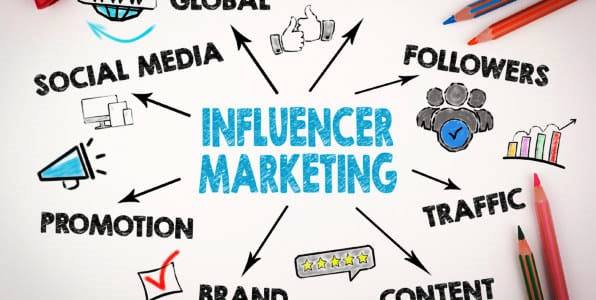Let’s face it: traditional advertising is losing its effectiveness significantly. Everywhere we turn, our eyes catch some ad; frankly, we’ve gotten pretty good at dismissing them. But when you scroll through Instagram, and one of your favorite Instagram chefs showcases a meal using a particular brand of cookware, that gets your attention, doesn’t it?
RELATED: Pixels to Profits: Online influencers are dominating social media with mega earnings
The reason behind this is not far-fetched. Today, the marketing space is more crowded and competitive than ever. People have become increasingly skeptical of polished, corporate-driven messages. They seek authenticity, connection, and trust—qualities many traditional ads struggle to deliver. This shift has prompted new strategies in marketing and advertising, one of which is influencer marketing.
What is Social Media Influencer Marketing?
Influencer marketing is a promotional strategy wherein businesses partner with influential industry voices to amplify their company, products, or services and promote them to a relevant audience. When combined with social media, influencer marketing involves partnering with individuals with a significant and engaged following on platforms like Instagram, TikTok, YouTube, or Twitter. These influencers—whether they are celebrities, industry experts, or everyday individuals with a niche audience—can sway their followers’ purchasing decisions through content creation, product endorsements, and authentic engagement.
However, influencer marketing isn’t a new trend. Brands have always understood the power of association and the need to tap into consumers’ trust and admiration for public figures.Whether it was movie stars, athletes, or musicians, these influencers have always played a key role in shaping consumer behavior. If you followed the popular trends some years back, you might remember when famous actress Genevieve Nnaji was the face of Lux beauty soap or Kanu Nwankwo was the critical face in Peak milk adverts. That was influencer marketing in action, albeit in a traditional style.
However, with the rise of social media, brands no longer have to depend on A-list celebrities to drive influence and sales. Social media has democratized influence, turning everyday people into influential brand ambassadors. With just 10,000 followers, that fitness enthusiast next door could be valuable to a local gym.
Unlike traditional celebrities, social media influencers often cultivate a more personal connection with their audience. They share their lives, thoughts, and recommendations in real time, making their endorsements feel more like suggestions from a friend rather than another sales pitch. This relatability and authenticity are vital reasons influencer marketing has become a crucial brand tool. It can help establish credibility and trust, attract quality leads, and boost brand awareness.
The dimension social media has added to influencer marketing is even more impressive. Previously, brands could only imagine the real-time interaction and feedback that platforms like Instagram, TikTok, and YouTube now offer. Today’s influencers are not just faces in an ad but content creators, storytellers, and community builders. They engage with their followers daily, responding to comments, answering questions, and sharing their lives authentically and unscripted.
However, we are getting to the point where we must decide if social media influencer marketing impacts the numbers at the end of the day or if it is just another vanity metric. When the influencer advertises your product to 10,000 or 20,000 followers, you get new followers, right? Now, what exactly is the percentage of followers you get from it? And then what percentage of those followers eventually translate to sales? It is one thing to have your followers increasing every month, but if those numbers are not converting to sales, you may find yourself in a tough spot soon.
As much as social media influencer marketing benefits brand growth, there is the question of whether it is worth being considered a core marketing strategy or is better off as an add-on. Again, the answer may vary across industries, so businesses in some sectors may find influencer marketing more valuable than others.
Just wondering…
Have you ever bought something just because an influencer recommended it? Or maybe you switched your go-to shampoo because that beauty guru couldn’t stop gushing about a new brand? Or do you roll your eyes at prominent product placements in your feed?
I would like to hear your thoughts on this. Are consumers buying what influencers sell? Or is it just about enjoying the content and giving it a thumbs-up? Or are they making actual sales decisions based on this?
Samuel Ajiboyede: Entrepreneur | Investor | Branding Expert | Author & Host of ‘The Entrepreneur’s Diary’
COVER IMAGE: Modern Talent































